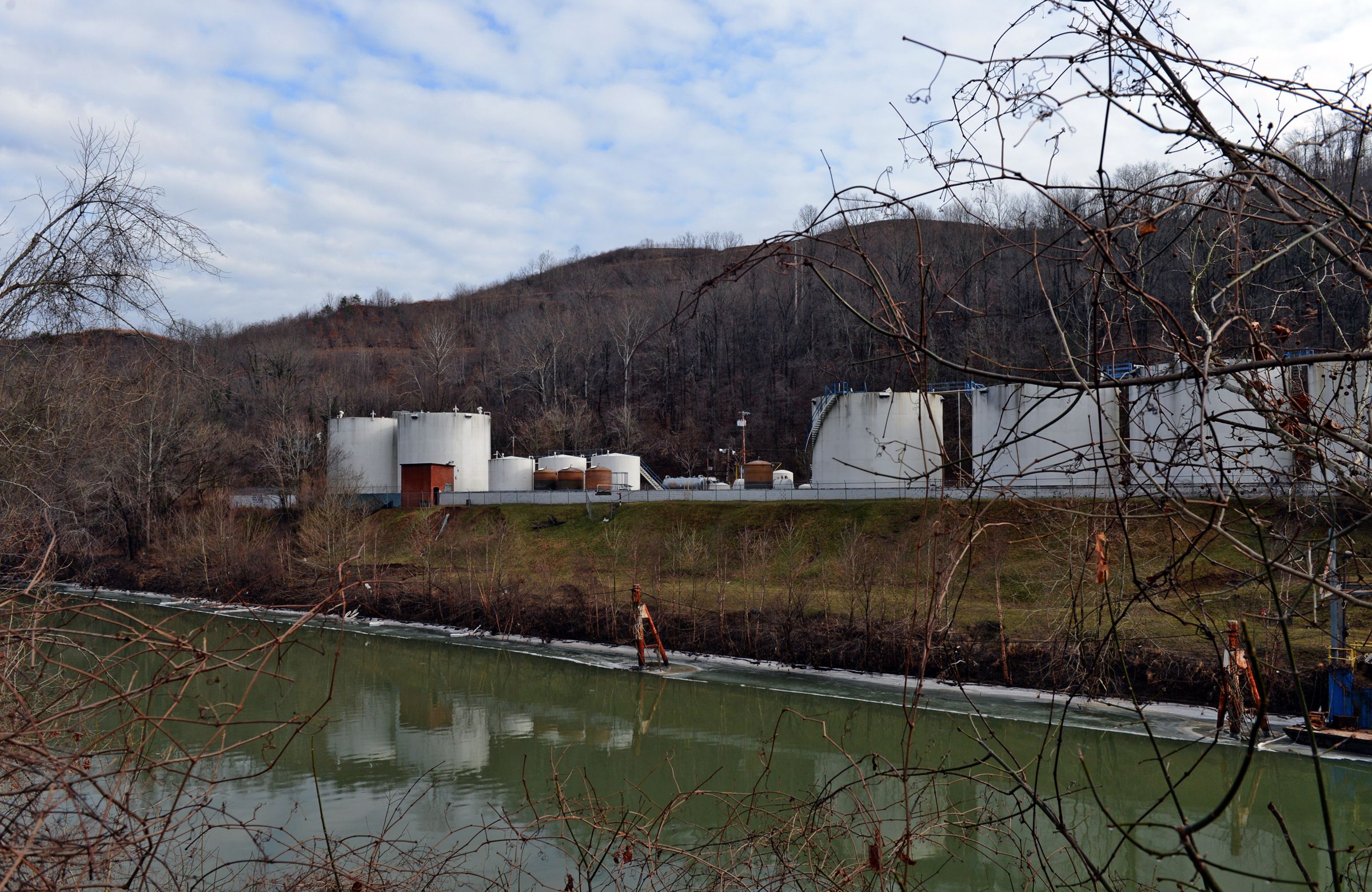
The full impact of the Freedom Industries chemical spill in West Virginia, which contaminated the drinking water of some 300,000 residents, may not be tallied for years. But a look at area hospitals reveals how several medical crises were narrowly avoided—and how many others may yet emerge.
The two major hospitals systems in the Kanawha River Valley, Thomas Health System and Charleston Area Medical Center, both told Newsweek that immediately following the spill on January 9, they were able to muster adequate drinking water through a mix of reserves and government assistance. However, one lingering concern was sanitation. "Hand washing is a huge patient and staff protection issue," said Brian Ulery, the System Vice President of Thomas Health Systems. The hospitals had enough water short-term, but it soon became clear that tasks like equipment sterilization and laundry would quickly become a problem.
For sterilization tools, there was no easy solution. CAMC, for instance, is the largest hospital system in the area. "There was nobody around us that could sterilize," said David Ramsey, the CAMC's System Administrator. Without clean tools, many emergency procedures would be impossible to carry out. It was only after discovering that the sterilization equipment happened to operate at a high enough temperature to vaporize the contaminant, MCHM, in the despoiled water that the hospital was able to resume using its equipment.
According to both hospital systems, laundry would have become a major sanitation issue if not for the help of nearby Highland Hospital, a psychiatric and mental health facility in Charleston. Its water had also been contaminated by the spill, but it had installed a water-recycling wash system in 2012. During the days-long "do-not-use" order placed on the tap water, Highland was able to reuse uncontaminated water to do thousands of pounds of laundry for Thomas and CAMC.
"We were the unsung hero," said James Strawn, director of marketing at Highland, "and boy did the folks we helped appreciate it."
Even after the do-not-use order was lifted in the valley, health officials have been unable to agree on the safety of the water. The Health Officer and Executive Director of the Kanawha County Health Department, Rahul Gupta, told Newsweek that more than three weeks after the spill he still doesn't drink from the tap. And, last week, multiple schools have had to send their students home for concerns about MCHM, even after the Center for Disease Control announced the water was acceptable.
According to Jessica McColley, a maternal-child health physician who works out of one of the schools that closed, one child "passed out three or four times" before they were able to get him out of the building.
McColley is eight months pregnant and is concerned that babies born in the area are being washed with contaminated water. She warns parents that, "unless you ask hospitals to bathe the baby in bottled water, they use tap."
"Once the ban was lifted, we returned to normal use," said Thomas V.P. Ulery. He added that he wasn't aware of any mothers requesting that their infants be bathed in bottled water. "I'm sure we would accommodate that," he said. "We'd be glad too."
According to Ramsey, CAMC's Women and Children's Hospital uses bottled water for all treatment of newborns. For most other procedures, however, the hospital system still relies on tap water.
McColley said she planned to have her baby at a local birthing center in order to ensure that neither she nor her child were in any way exposed to MCHM. But a diagnosis of prenatal diabetes means she must go to either Thomas or CAMC. She, along with other pregnant women in the valley, will have no choice but to entrust her medical care to hospitals that use contaminated water. "It's an added stress to pregnancy," she said. "It's been a nightmare."
Uncommon Knowledge
Newsweek is committed to challenging conventional wisdom and finding connections in the search for common ground.
Newsweek is committed to challenging conventional wisdom and finding connections in the search for common ground.





